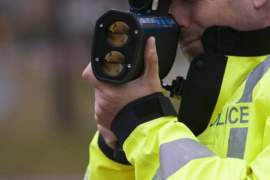
Homicide Detective Defined

What is a homicide detective?
A homicide detective is a member of law enforcement that coordinates murder investigations. These detectives work with a team of forensic experts to determine cause of death and indentify potential suspects. Becoming a homicide detective usually requires an advanced degree and several years of experience working in the police department. Contrary to media perceptions, it is also a very tedious and painstaking job that requires critical analysis and attention to minute details.
How does one become a homicide detective?
A criminal justice degree is essential for candidates wishing to pursue a career as a detective. In most jurisdictions, becoming a detective requires a certain amount of years as a police officer before being offered a promotion. Additionally, there are additional examinations required to prove competency for the position. Even then, most detectives will start in less complex divisions of the department such as vice or domestic violence before being promoted to homicide detective. Typically it takes at least five to six years between entering the police academy and earning a promotion to homicide detective.
What are some criminal investigative techniques employed by homicide detectives?
A homicide detective primarily cultivates leads by speaking to witnesses as well as family members of the victim and suspects. As the lead investigator, the detective will identify and interrogate suspects in hopes of coaxing a confession. Contrary to popular media depictions, detectives cannot threaten violence to force confessions or cooperation, although they may lie and exert psychological pressure. They may also offer plea deals and other benefits in exchange for information.
The detective has the benefit of forensic specialists and other technicians that can aid the detective in identifying evidence and the scene of the crime and matching that evidence to the suspects. Forensic evidence such as blood, hair or saliva may link suspects to the scene of crime, which may also link them to the crime itself. Coroners perform autopsies to determine cause of death and possible murder weapons. Ballistics can identify specific weapons by the grooves left on the bullet by the gun’s barrel. In this way they can identify a murder weapon and tie it back to a suspect. There are other forensic techniques to identify forged documents and identification documents as well as handwriting analysis to decode letters and other forms of correspondence. It is the job of the detective to produce the evidence that will get the guilty party convicted in court.
Lastly, detectives have access to police records of convicted felons which they may review in hopes of producing a suspect. With a warrant, police are also able to search personal finance information and phone conversations.
















